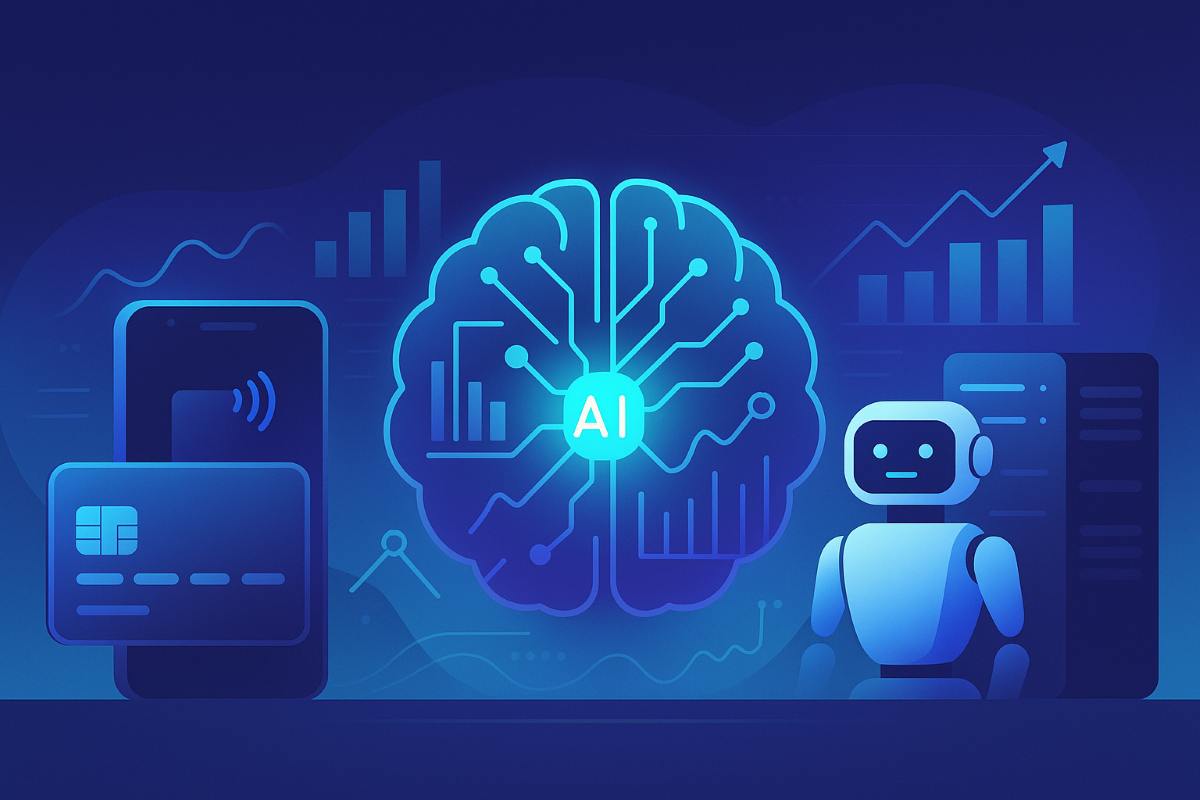Financial technologies (fintech) now offer far more than basic services like payments, lending, and account management. Today’s consumers demand speed, security, and personalized experiences on digital platforms.
At the core of this transformation lie artificial intelligence (AI) finance solutions and data analytics. These two forces are making the fintech ecosystem smarter, more predictive, and increasingly user-centric. Let’s take a closer look at the technologies shaping the future of finance.
AI in Finance: The New Financial Landscape Powered by Smart Algorithms
AI-powered finance applications are making financial decision-making faster, more efficient, and more secure. With machine learning and data analytics models, a profound transformation is underway in areas such as credit scoring, risk management, fraud detection, and investment advisory.
AI-based systems used in credit approval processes can make instant decisions based on a broader dataset than traditional methods. These systems analyze not only credit history, but also user behavior, shopping patterns, and even social data. As a result, personalized credit offers become more accurate and aligned with the user’s habits.
In fraud detection, AI provides real-time transaction analysis to immediately flag suspicious activity. This creates a secure environment for users while also protecting the reputation of financial institutions.
Data-Driven Decisions: A Strategic Roadmap in Fintech
Data-driven decision-making holds strategic importance in channeling resources to the right areas. When you act based on real-time data instead of intuition-based or mass planning, you can reduce costs, increase conversion rates, and minimize risks.
Financial institutions can continuously analyze transaction history, user behavior, campaign performance, and complaint metrics to formulate more effective strategies. For instance, payment overlaps, tendencies for delayed payments, or usage frequency within certain customer segments can all be identified through data.
With these insights, campaigns can be tailored to specific target groups, product pricing can be optimized, and operational processes can be reshaped based on real-world data. This boosts competitive strength and enriches customer satisfaction.
Customer Analytics: Building Experience-Based Services
Customer analytics enables a deep understanding of user behavior on a platform. Questions such as which member completes which actions, how often they occur, what times of day are busiest, and which services are in demand can be answered through data analysis.
Based on this knowledge, mobile apps can offer payment reminders, personalized limits, loyalty program recommendations, and credit score improvement suggestions. This fosters an approach that delivers value to the customer, understands their challenges, and offers effective solutions.
User segmentation also plays a major role in this process. The expectations of young, active users may differ from those of professional users. Personalized content allows for campaign flows designed for each segment—automatically and in real time.
Personalized Services: The New Standard in Fintech
Personalized services are rapidly becoming the new norm in the fintech world. Instead of a one-size-fits-all pricing model, the focus has shifted toward behavior-driven, user-specific offers, credit limits, payment plans, and product recommendations.
For example, a user applying for credit may be offered a tailored interest rate or installment plan based on their past purchases, spending levels, and repayment history. This level of personalization greatly enhances customer satisfaction and loyalty.
AI-powered recommendation systems provide users with suggestions exactly when they need them. For instance, if a user is planning to shop abroad, a foreign currency credit card can be suggested. Models that analyze biofeedback data can intelligently craft personalized payment plan proposals.
The Future Finance Ecosystem: The Convergence of AI and Data Analytics
In the fintech world, AI and data analytics are complementary technologies. AI processes data and generates insights, while analytics detects trends and signals over time. Through this synergy, institutions form stronger connections with users, enhance service quality, and strengthen risk management.
The main benefits of these technologies include increased efficiency, customer-centric structures, lower operational costs, and strategic flexibility. Moreover, data analytics supports faster go-to-market processes and testing, enabling the development of innovative solutions.
AI and Analytics as an Investment in the Future
Sustainable growth and competitive advantage in the fintech sector depend on effectively combining the following three elements:
- Making transaction processes smarter with AI-driven finance solutions
- Defining strategic focus with data-driven decision-making
- Increasing customer loyalty through analytics and personalized services
This approach not only utilizes technology but also transforms infrastructure competency into institutional culture. As fintech firms strengthen these capabilities, they will not only meet today’s demands—but also help shape the financial ecosystem of tomorrow.
In conclusion, investing in AI and data analytics is not an expense for the fintech industry—it is a strategic investment in the future. When these two technologies are combined, customer satisfaction increases, competitive power rises, and digital transformation is built on solid foundations. The future of fintech lies in intelligent systems fueled by data.
AI and Data Analytics: The New Trajectory of Fintech
With the digitization of financial services, AI and data analytics have evolved beyond being just technological tools—they are now strategic cornerstones of the industry. In an era where competition in fintech is intensifying and user expectations are rapidly changing, the greatest advantage for brands that want to stand out lies in analyzing data accurately and integrating those insights into intelligent systems.
Thanks to AI finance applications, both businesses and users are accessing faster, more accurate, and more secure services. These systems empower decision-making across a wide spectrum—from credit risk management and payment security to investment advisory and customer segmentation. Machine learning algorithms identify future trends by learning from past data, while deep learning technologies simplify and operationalize complex financial models. This provides not just cost efficiency, but also strategic agility.
Meanwhile, data-driven decisions form the foundation of institutional success. A well-structured analytics infrastructure enables accurate understanding of customer behavior, creation of custom offers for different target audiences, and continuous optimization of operational processes. This approach strengthens customer experience while promoting more sustainable business practices.
Customer analytics and personalized services are among the strongest tools for driving loyalty in fintech. Today’s user wants personalized solutions, quick access to the services they need, and a sense of security. Meeting these needs isn’t just about the product portfolio—it’s also about how the product is delivered. AI and data analytics make it possible to deliver a unique experience for each customer.
For any institution aiming for lasting success in the fintech sector, AI and data analytics are no longer optional—they are essential. Every investment in these technologies means stronger customer relationships, more efficient business models, and a more resilient future.
Leadership in fintech comes not only from offering innovative products but also from the intelligent systems behind those products. This can only be achieved through a data-driven, AI-powered, and human-centered financial architecture. For those who want to build the future today, the most strategic move is to become part of this transformation.


Leave A Comment